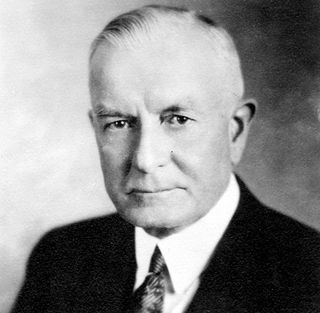A Quote by Steven Brust
It is always man's ideas which drive his actions. This has, at times, resulted in great evil; but as we look around us, we cannot doubt that it has resulted in greater good.
Related Quotes
The actions of bad men produce only temporary evil, the actions of good men only temporary good ; and eventually the good and the evil altogether subside, are neutralized by subsequent generations, absorbed by the incessant movements of future ages. But the discoveries of great men never leave us; they are immortal; they contain those eternal truths which survive the shock of empires, outlive the struggles of rival creeds, and witness the decay of successive religions.
When one has once accepted and absorbed Evil, it no longer demands the unfitness of the means. The ulterior motives with which youabsorb and assimilate Evil are not your own but those of Evil.... Evil is whatever distracts. Evil knows of the Good, but Good does not know of Evil. Knowledge of oneself is something only Evil has. One means that Evil has is the dialogue.... One cannot pay Evil in installments--and one always keeps on trying to.
Verily has man freewill to control his actions. That my Father-Mother has given to man as his inheritance. But the control of the ractions to those actions man has never had. This my Father-Mother holds inviolate. These cannot become man's except through modifying his actions until the reactions are their exact equal and opposite in equilibrium.
Keats mourned that the rainbow, which as a boy had been for him a magic thing, had lost its glory because the physicists had found it resulted merely from the refraction of the sunlight by the raindrops. Yet knowledge of its causation could not spoil the rainbow for me. I am sure that it is not given to man to be omniscient. There will always be something left to know, something to excite the imagination of the poet and those attuned to the great world in which they live (p. 64)
Take the case of just actions; just punishments and chastisements do indeed spring from a good principle, but they are good only because we cannot do without them - it would be better that neither individuals nor states should need anything of the sort - but actions which aim at honor and advantage are absolutely the best. The conditional action is only the choice of a lesser evil; whereas these are the foundation and creation of good. A good man may make the best even of poverty and disease, and the other ills of life.
If it were possible for us to have so deep an insight into a man's character as shown both in inner and in outer actions, that every, even the least, incentive to these actions and all external occasions which affect them were so known to us that his future conduct could be predicted with as great a certainty as the occurrence of a solar or lunar eclipse, we could nevertheless still assert that the man is free.
In all modern history, interference with science in the supposed interest of religion, no matter how conscientious such interference may have been, has resulted in the direst evils both to religion and to science, and invariably; and, on the other hand, all untrammelled scientific investigation, no matter how dangerous to religion some of its stages may have seemed for the time to be, has invariably resulted in the highest good both of religion and of science.



































